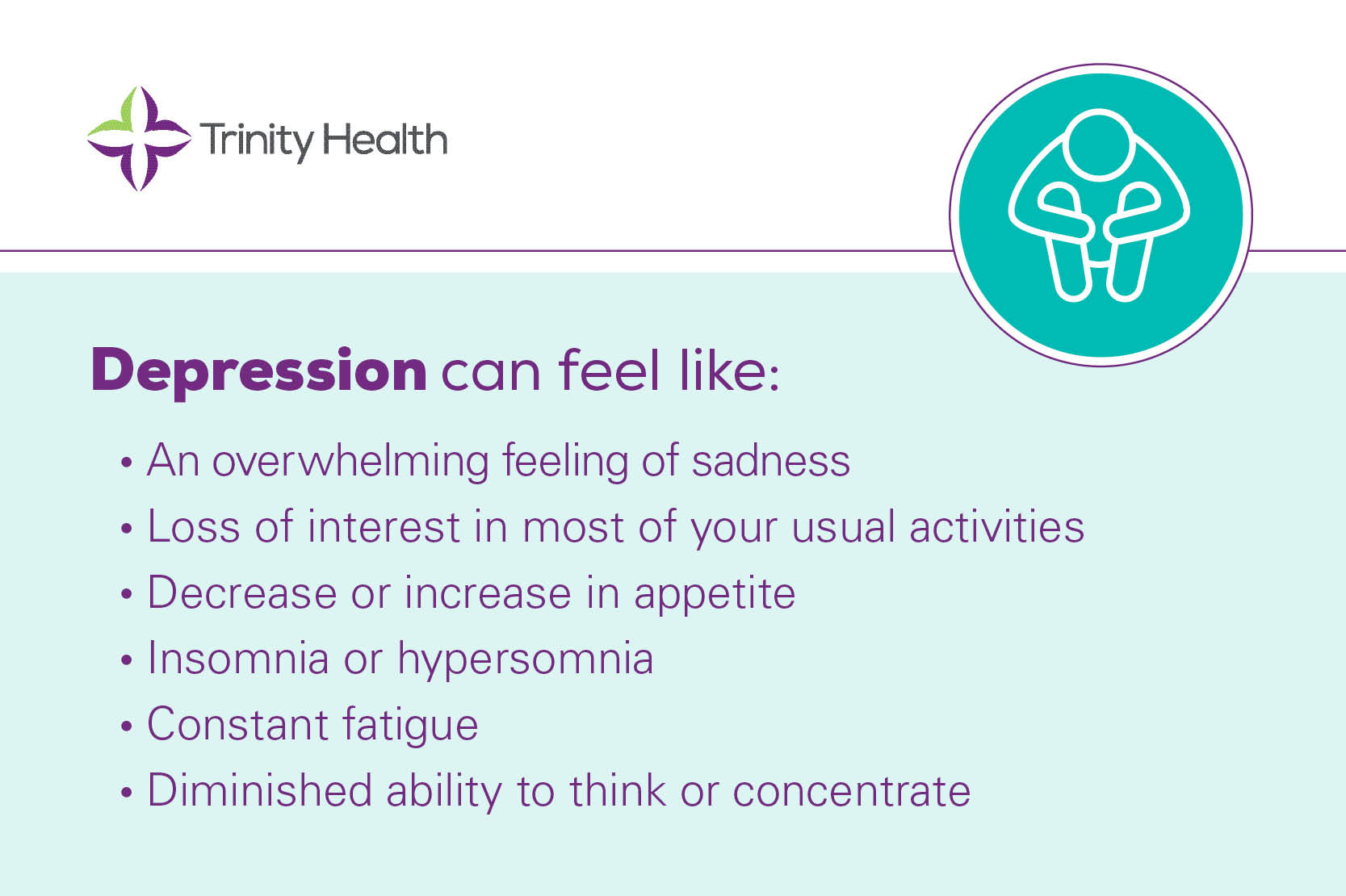How to Manage Depression Symptoms
February 7, 2025
Categories: Behavioral & Mental Health
Tags: Depression, Mental Health
“Managing depression can feel overwhelming, but small steps can lead to meaningful changes,” says Paul Dieleman, DNP, Trinity Health Medical Group, Psychiatry - Grand Rapids. While professional treatment such as therapy or medication is often necessary, self-care practices play a vital role in managing symptoms and improving mood.
Strategies for Managing Depression
Establish a Routine
Depression often makes it hard to maintain structure in daily life, leading to chaos or lack of purpose. Creating a simple routine can provide stability. Start small with tasks like setting a regular wake-up time, scheduling meals, or dedicating time for self-care activities. Even minor goals can bring a sense of accomplishment.
Exercise Regularly
Exercise is a powerful tool in managing depression. Physical activity releases endorphins, the body’s natural mood lifters, which can help reduce feelings of sadness and anxiety. You don’t need intense workouts; even a daily walk can help. Regular exercise can also improve sleep and energy levels.
Connect with Others
Depression often leads to social withdrawal, but maintaining connections with friends and family is essential. Talking to someone about how you’re feeling can reduce the sense of isolation. If direct socializing feels difficult, consider joining a support group to share experiences with others facing similar challenges.
Focus on Nutrition
Depression can affect appetite and eating habits, but maintaining a balanced diet is important. Nourishing your body with healthy foods like fruits, vegetables, whole grains, and lean proteins can improve energy levels and mood. Limit caffeine, sugar, and processed foods, as these can exacerbate mood swings and fatigue.
Practice Mindfulness and Meditation
Mindfulness practices, like meditation or deep breathing exercises, can help manage stress and negative thoughts associated with depression. These techniques help ground you in the present moment, reducing rumination and anxiety.
Seek Professional Help
While self-care is crucial, professional help is often necessary to manage depression effectively. Therapy, such as cognitive-behavioral therapy (CBT), helps individuals develop coping strategies, while medication may be prescribed to balance mood.
“Remember, managing depression takes time, but you are not alone on this journey,” emphasized Dieleman. “With the right support and strategies, you can regain control and improve your well-being.”
Put your mental health first. If you are struggling with depression or any behavioral health disorder, we can help.
This blog was medically reviewed by a Trinity Health provider.




